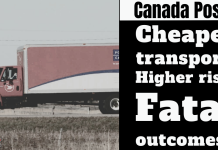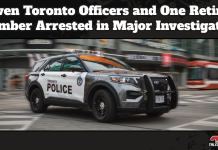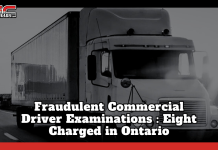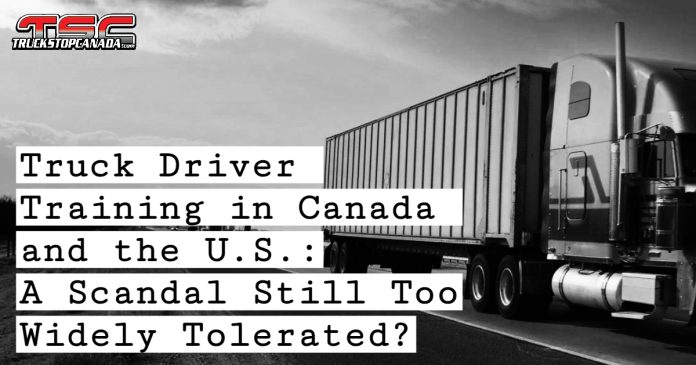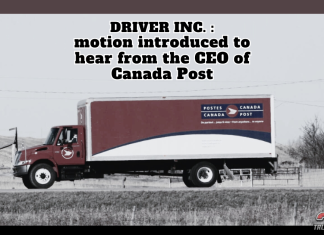The Federal Motor Carrier Safety Administration (FMCSA) appears to be cleaning house in its official registry of truck driver training providers after mounting criticism over its lax oversight of non-compliant schools.
In April, two influential organizations—the Commercial Vehicle Training Association (CVTA), which represents private schools, and the National Association of Publicly Funded Truck Driver Schools (NAPFTDS)—called out both the Department of Transportation (DOT) and the FMCSA for failing to act. They described non-compliant training centers as a “threat” to the industry, accusing them of exploiting aspiring drivers, undermining legitimate institutions, and endangering public safety by putting undertrained drivers on the road.
The situation feels all too familiar in Canada, especially in Ontario, where similar problems have surfaced, suggesting this is part of a broader North American trend.
A Late But Sweeping Response
Until April 2025, only four schools had been removed from the Training Provider Registry (TPR) since 2023—three of them under emergency conditions—despite hundreds of complaints from citizens and state agencies.
Under pressure, the FMCSA has stepped up its efforts. Nearly 60 driving schools were delisted from the TPR in recent weeks. This database is critical: since 2022, under the Entry-Level Driver Training (ELDT) rule, anyone seeking a commercial driver’s license (CDL) must attend a school listed in the registry.
Gaps Remain in the Registry Cleanup
Martin Garsee, Executive Director of the NAPFTDS and owner of a Houston-based training center, welcomed the FMCSA’s action but pointed to troubling inconsistencies. According to him, 47 of the 57 schools removed were based in just four states: Michigan, Rhode Island, Ohio, and North Carolina—indicating that many jurisdictions are not reporting their problem schools at all.
Moreover, several delisted institutions had not offered CDL training for years. One claimed to have ceased operations as early as October 2022, shortly after the ELDT rules came into effect. Others included trucking companies that had once provided internal training or community colleges now inactive, raising questions about whether all removals were voluntary or enforced.
As of June 2025, over 8,200 training providers remain listed in the TPR, including in-person, online, and mobile options. But many industry stakeholders believe much more needs to be done.
Fast-track, questionable programs that “sell CDLs for fast cash” are still a serious concern—especially in a climate where some new drivers, particularly newcomers or those who do not speak English, face increasing mistrust.
A Known Issue in Canada
Several Canadian provinces have also tightened their oversight of truck driving schools. In Ontario, despite the MELT (Mandatory Entry-Level Training) program being in place since 2017, major inconsistencies in enforcement have led to the revocation of all private college approvals. To retain accreditation, schools must now submit a detailed training plan by July 2025.
In Alberta, MELT has been replaced by the new Class 1 Learning Pathway, backed by a $54 million investment over three years to enhance instruction quality and support recruitment. Schools must now meet strict requirements, including maximum student-to-instructor ratios, proper facilities, and clearly defined course content, both in-class and in-truck. Schools that fail to comply risk suspension or permanent delisting.
In Manitoba, a sharp increase in registered schools since 2019 has led to stricter licensing criteria, including standards for facilities, insurance, instructor ratios, and curriculum.
In contrast, Québec has yet to implement mandatory training for future truck drivers, despite public commitments from Deputy Premier and Transport Minister Geneviève Guilbault.
Systemic Laxity or Lack of Political Will?
These efforts show a broader attempt to restore integrity in a sector where foundational training is critical to public safety. Although some bad actors have been penalized, many drivers and industry professionals are calling for significantly more inspections and tougher, more dissuasive sanctions.
Evidence from the road suggests that lax practices—and even outright fraud—in licensing and training persist. The blame does not lie solely with training centers; some trucking companies hire in haste, exploiting every possible loophole, including those related to inadequate training.
In both Canada and the U.S., the pressure is on for governments to take bolder action in a field where training quality directly impacts highway safety—and, by extension, public safety. Properly training commercial drivers isn’t a luxury. It’s a collective responsibility. Lives—our own and our children’s—depend on it.
Read More :
Ontario’s Highway 11-17: Crashes, Broken Lives… and Government Neglect

